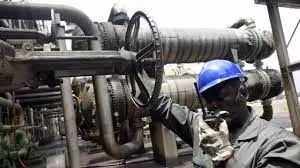- Home
- /
- Oil and Gas
- /
- Refinery Rehab: Don’t...
Refinery Rehab: Don’t expect immediate PMS price crash, experts tell Nigerians

Some oil and gas experts have said that the coming on stream of both Port Harcourt and Dangote refineries may lead to some marginal reduction in the cost of petroleum products and not a significant price crash.
The experts made this known in an interview with the newsmen on Sunday in Abuja.
According to them, some ancillary costs, such as freight and port charges, among others, would have been eliminated to achieve the marginal reduction.
On December 21, the Federal Government announced the mechanical completion and flare start-up of Port Hacourt Refining Company Limited (PHRC) and the subsequent streaming of phase two in 2024.
This, according to the Minister of State Petroleum (Oil), Sen. Heineken Lokpobiri, will herald the commencement of the production of petroleum products after the Christmas break.
The PHRC was comprised of two refining units, with the old plant having a refining capacity of 60,000 barrels per day (bpd) and the new plant having 150,000 bpd, both summing up to 210,000 bpd.
Reacting to the development, an Associate Professor of Energy and Natural Resources at the University of Abuja, Olanrewaju Aladeitan, said there should be some marginal reduction in petrol prices as some ancillary costs would have been eliminated.
However, he explained that the price of petroleum products may not come down significantly enough to describe it as crashing.
“The price may not come down significantly considering the fact that crude oil and condensate supply for the domestic market under the Petroleum Industry Act is going to be based on a willing supplier and a willing buyer basis.
“And the fact that the supply of crude oil will be commercially negotiated having regard to the prevailing international market price for similar grades of crude,” he said.
With this provision, he said there would be no dedicated percentage of crude for local refineries.
“Hence international market price which of course is denominated in dollars will still be the determinant of cost of the crude oil that would be refined.
“So I do not see how the price of Petroleum products will crash,” Aladeitan said.
Also speaking, Mr Yushau Aliyu, an Economic Expert, said reaching to a mechanical test of the refinery after a very long fruitless effort was an indication that part of our refined Premium Motor Spirit (PMS) deficit would be attended.
Aliyu described it as a good signal of recovery in the forex deficit, which dominated the dwindling liquidity crisis.
“In addition, the new Nigerian National Petroleum Company Limited (NNPC Ltd.) is responding to the immediate solution for the availability of PMS in the economy.
“We are expecting NNPC Ltd.’s retail stations to reduce their pump prices due to the absence of landing costs in the short term,” he said.
Another oil and gas expert who preferred to remain anonymous said it was obvious that some people in the oil and gas sector were engaged in an act of sabotage.
He frowned at the situation where the government preferred to spend so much, including foreign currency, to import fuel rather than fix its refineries.
“They claim that the 60,000 barrel capacity refinery in Port Harcourt is back on stream, while the 150,000 barrel capacity will work soon.
“We are waiting to see them work, including that of Warri and Kaduna. When they are put to use, let’s see why fuel prices will not crash,” the expert said.
Supreme News reports that the pump price of PMS has increased to N660 per litre at various fuel stations, while NNPC Ltd.’s retail outlets sell at N617 since the removal of subsidies in May 2023 due to high crude costs and a high foreign exchange rate.
The aftereffects of the removal and high cost of fuel brought untold hardship and suffering to Nigerians due to inflation and an increase in goods and services, among others.



